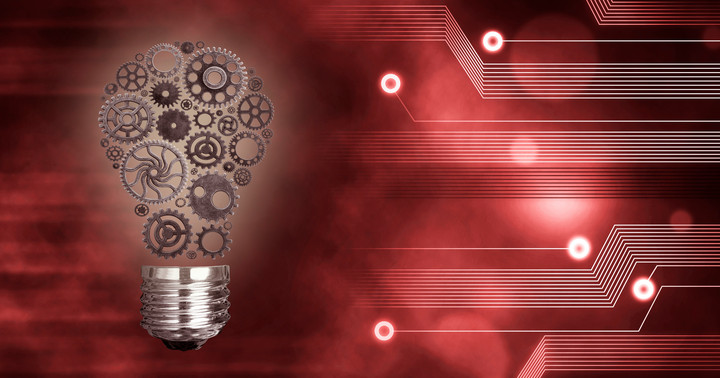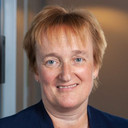Education and Research in the Context of Digital Transformation
To support research into the digital society, the German government-funded Weizenbaum Institute for the Networked Society was founded in September 2017. dotmagazine spoke to the Director of Fraunhofer FOKUS and one of the co-founders of this "German Internet Institute", Prof. Ina Schieferdecker, about both the institute and the broader topic of education in the digital society.

© Vieriu Adrian | istockphoto.com
Watch the 8-minute video above or on YouTube, or read the transcript below:
Transcript
dotmagazine: As one of the founders of the Weizenbaum Institute, can you tell us something about the institute, its objectives, the reason for establishing it, and its research focus?
Prof. Ina Schieferdecker: It’s the Weizenbaum Institute for the Networked Society. It is a basic research institute – indeed, it’s still a research project, and we want to make it independent in the coming years. We have around one hundred and twenty employees, of course mainly from research. We address the general topic of sovereignty in the networked society. And we look at this topic from the individual, organizational, and national or international level and what it means that the society is changing with digital transformation.
We look at these questions within six research areas within 20 research groups. Every research group has a post doc and two to three PhD students, plus students who help with some analytical or empirical work, etc.
It was established as part of the Digital Agenda of the German government and it’s unique in its setting and in its funding compared to other Internet institutes. We do not have just legal, or political science, or communication specialists, but all together within interdisciplinary teams.
We also have technical people like me, looking at how to shape the digital technology so that it fits our principles of democracy or where we want to aim at with respect to the sustainability goals, for example.
dot: What do you see as the potential of collaboration between academia and industry for the development of the digital society?
Prof. Schieferdecker: I think it is heavily needed, because science can only open and reflect the options that we have at hand. But bringing that into operation is the duty of the industry, I’d say. And as I’m also with Fraunhofer – which is for applied research – I know the chances and the challenges in doing transfer of research results, and what it means to bring into reality some main infrastructures for the digital change.
dot: One of the fields of research at the Weizenbaum Institute is digital education. Why is this an important topic and how is education set to evolve in the next decade?
Prof. Schieferdecker: I think that, being an educator, I know how hard it is to make digital transformation, and again its potentials, understandable to many people. I mean, I’m teaching in computer science and related areas, and those people already have a basic understanding – and it’s still hard to discuss the dramatic changes that I think are in front of us, and what it means to take responsibility for these changes, and what it means to find their own role in this transformation.
I think we need to have this main understanding in almost every area of work and life. I mean, I meet people in public administration who really strongly need this basic understanding, so I want to help ensure that there are more educational offers and educational resources for the broad community that is interested, or that needs to know out of their own work, what is going to happen and what has happened already in the digital change.
With respect to the question of how education is going to change: Of course there are the straightforward answers that digitalization itself offers interesting instruments to improve education. I think many have overestimated it – that you just use some digital artefacts and education gets better. That is, of course, not true. We still need to find a good balance between the digital online elements of education and having a good lifelong offer, along with other educational challenges. But there are other experts that are looking into that, and I am confident that they will find good solutions.
dot: What are some of the most pressing areas of research when it comes to digital society?
Prof. Schieferdecker: Well, there are numerous. Because I am part of this interesting endeavor with Weizenbaum, I am involved in many interesting interdisciplinary discussions, but out of my own research interests, I’m currently very interested in the question of how we can use the power of digital change to achieve the Sustainable Development Goals. I think if you ask for the large societal challenges, then they are set by the U.N. And I think the U.N. should become more aware of the chances and risks related to the digital change that is happening out of economic interests. We need to find a good combination of social interests and ecological interests along this economic view of digital transformation.
Doctor of Engineering, Prof. Ina Schieferdecker heads the Fraunhofer Institute for Open Communication Systems, FOKUS, and holds a professorship in "Quality Engineering of Open Distributed Systems" at the Technical University of Berlin. She is also founding director of the Weizenbaum Institute for the Networked Society, also known as the German Internet Institute. Her research interests include urban data platforms, critical infrastructures, software engineering, and the interoperability, security, and trustworthiness of software-based systems.
Please note: The opinions expressed in Industry Insights published by dotmagazine are the author’s own and do not reflect the view of the publisher, eco – Association of the Internet Industry.




